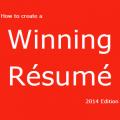-
Posts
634 -
Joined
-
Last visited
-
Days Won
42
Content Type
Profiles
Forums
Downloads
Events
Store
Everything posted by Tom Spencer
-
In consulting firms, the "up or out" policy is a requirement that consultants be selected for promotion within a certain period of time, or they will be "counselling out" of the firm. Is this a bad thing? Well, on the one hand, if you are a super star consultant, then the "up or out" policy is a good thing since it can give you the chance to progress your career at an accelerated pace, gaining valuable work experience within a relatively short period of time. However, on the other hand, consulting firms typically have a pyramid structure (with a few partners at the top, and lots of juniors at the bottom), which means that every year some consultants will inevitably be encouraged to pursue other opportunities. But since top consulting firms only hire the best of the best, leaving after two years should not be viewed as a failure. It is very common for this to happen. A few years of management consulting experience can open up various attractive exit opportunities including: Pursuing an MBA at a brand name business school (Harvard, Stanford, Oxford, INSEAD) Going to work at another consulting firm (just because you leave one firm, doesn't mean you have to leave the industry) Going to work for a client (you already know their business, and so if they like your work they may try to poach you) Build a startup. Consultants gain experience in understanding various industry sectors, and this knowledge could be used to identify opportunities for a new start-up company. The connections and networks built during your years in consulting may also come in useful when trying to raising start-up funding. Some of the commentary I read elsewhere suggests that junior consultants need to be guarded, and avoid making friends so that they can remain as competitive as possible in an "up or out" environment. While consulting firms are no doubt very competitive environments, I would suggest instead that junior consultants focus their attention on maximising their contribution (both in a professional and social setting). This will naturally attract positive attention (but be careful not to let others steal your credit). Consulting is probably not a good career path for people looking for affirmation from colleagues and clients. As New York based consultant Alan Weiss puts it, "if you want to be liked, get a dog". Is a consulting career high risk? In my view, students looking to start their career in the management consulting industry should view it as a continuation of their education. You may not remain a consultant for your whole career, but you may get to work on interesting projects and learn a lot for a few years before you reassess what you want to do with your life.
-

Big four's management consulting versus MBB
Tom Spencer replied to Abby Chang's topic in Consulting Forum
Hi Abby, Thanks for your question! There are a few key differences between the Big 4 (KPMG, EY, Deloitte, PwC) and MBB. Nature of the work - The Big 4 are traditionally accounting firms, which now provide a wide range of professional services including audit, financial advisory, tax, legal and consulting. The Big 4 and MBB may work on similar types of consulting projects, but it will depend a lot on which office you work for, and which practice area you end up in. Historically, the Big 4 have had a bigger focus on operations and implementation, whereas MBB have focused more on pure strategy questions. Hours worked - As a junior in a large professional services firm (i.e. Big 4 or MBB) you can expect to work 60+ hours per week. In other words, Big 4 and MBB will both be long work hours. This may vary depending on what projects you are working on. Prestige - MBB is much more highly regarded in the consulting industry. Why? Well, they spent many years and millions of dollars to make sure this is the case. MBB tends to attract higher calibre employees who studied at more prestigious schools, and as a result MBB consultants tend to progress in their careers much faster (whether it be promotions within MBB, heading off to B-school, or taking a job elsewhere). Don't underestimate the value of a powerful brand name. The People - Most people who land jobs in consulting at the Big 4 and MBB will be smart, hard working and generally impressive individuals. That said, MBB has more pulling power, and will consistently attract the best of the best. Historically, MBB would only recruit from the very best universities, however it seems they now consider a broader range of applicants. Exit Options - Big 4 and MBB will both offer you strong exit opportunities (e.g. B-school, industry, PE). In my experience, business schools and recruiters place a premium on MBB compared to Big 4. MBB are the Oxbridge of the consulting world. Does that help? -

Victor Cheng - Case Interview Overhead Slides
Tom Spencer reviewed Tom Spencer's file in Interview Prep
-

PEST Analysis Template
Tom Spencer reviewed Tom Spencer's file in Templates, Guidebooks, and Reports
-
-
-
-
View File 10 Tips For Startup Founders Are you thinking about becoming an entrepreneur? This concise ebook provides 10 tips that every startup founder needs to know. Read it before you get started. Submitter Tom Spencer Submitted 08/12/2015 Category Templates, Guidebooks, Reports
-

Marks vs. Quantitative Skills: A Student Perspective
Tom Spencer replied to Patrick's topic in Consulting Forum
Patrick, Apologies for the delayed response (your post was for some reason scheduled for moderation). This is a great question, and it really helps to highlight the perverse incentives that the education system can impose on students. The education system tends to push clever students to challenge themselves academically, but this may not turn out to be useful for career purposes. Out of interest, what are the harder subjects that you are considering? Are they relevant for jobs like banking and consulting? I agree with you that harder subjects can provide you with more opportunities to challenge yourself and enhance your intellectual skills, but you also need to keep your goals in mind. Three (3) points to consider: 1. Relevance of the content - Are the courses directly relevant for consulting/banking? That is, do they provide practical information that would allow you to be more effective at producing value for your boss and the client on day one? They probably don't. It's worth noting that 80% of the content you learn in class will never be directly used once you enter the workforce. 2. Demonstrating success - Unfortunately, you will not get rewarded for "challenging yourself". You will get rewarded for demonstrating success. If you are a high achiever, then I appreciate that this can be hard to come to terms with because your natural inclination will be to want to push yourself to see how much you can achieve. What you need to appreciate is that consulting firms (like your future clients) only really care about outcomes, and they don't really care that you picked difficult subjects. If you feel you can excel in the hard subjects, by all means take them. For bright students, easy subjects can sometimes become boring, and so harder to focus on and do well in. 3. Long term impact - In the short run, you want to get job offers and high marks can help you land interviews. In the long run, your marks may or may not matter. There is every chance that you may want to pursue further education (e.g. masters, MBA or PhD). For Masters and PhD programs your undergraduate marks (and subjects) are likely to be relevant. For MBA programs your work experience, work references and GMAT scores will carry most of the weight. Does this help? -
Case Interview Example
-
Candidate-led Case Interview
-
How to Take Notes in Consulting Case Interviews
-
Case Interview Frameworks - Templates for drawing great Issue Trees
-
Hypothesis - Consulting Case Interview Prep
-
Brain Teasers - Secrets to solve ANY brain teasers
-
McKinsey Problem Solving Test (PST) & BCG Potential Test https://www.youtube.com/watch?v=x1WZhAVeoy4
-
MECE - Consulting Case Interview Prep
-
3,638 downloads
The Little Blue Book is designed for student consultants, and aims to provide key concepts and frameworks that can be used to evaluate situations and business problems more quickly and easily than would otherwise be possible. To stay in the loop, please following us on LinkedIn here.Free -
Market-sizing & Guesstimate Questions
-
Case Interview 101 - A great introduction to Consulting Case Study Interviews
-
Thanks for sharing your thoughts, Sally. I think the first one is definitely helpful for getting around a gatekeeper in any context. The second one is more relevant to selling consulting projects, but is still interesting. I like the third one the most, yet it's often the most difficult to implement.
- 1 reply
-
- gatekeepers
- economic buyer
-
(and 1 more)
Tagged with:
-
Ted, I completely agree with what you say about big data and computer processing power. I believe that the disruption of professional services, as we know it, is coming but it is not clear when it will arrive. I'm sure you've already seen it but relevant to this discussion is Jeremy Howard's fascinating talk about the implications of computers that can learn (embedded below). Howard shares the view (which may be quite frightening if you currently have a highly paid professional services job) that computers which are able to learn will be able to teach themselves to do cognitively complex tasks, the kinds of tasks that are currently performed by highly paid professional services firms. The question is, what will happen to today's large, prestigious and highly paid professional services firms when data scientists are able to solve the same problems more quickly and for lower cost using computer algorithms? Existing firms will either be forced to buy the new technology and integrate it into the their existing practices (and presumably layoff a large number of employees in the process). Alternatively, or perhaps additionally, we will see disruption innovation on a similar scale to that which was seen during the industrial revolution.
-

My experience with gamifying employee engagement
Tom Spencer replied to Ted's topic in Consulting Forum
Ted, Thanks for sharing your interesting experiences with gamification in response to my recent blog post on the topic. One of the interesting points you noted was about the effect of gamification on smoothing the HR performance review process. It has always occurred to me that the once a year performance review cycle is extremely forced and unhelpful. Feedback needs to be immediate or it loses its ability to motivate and help employees learn from mistakes. The annual review cycle lets lazy managers believe that they don't need to pay constant attention to performance since they can be done during the annual review process.





